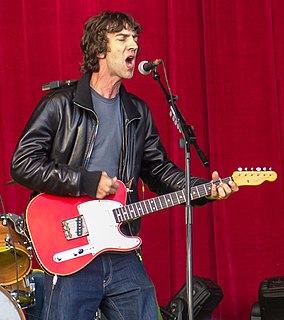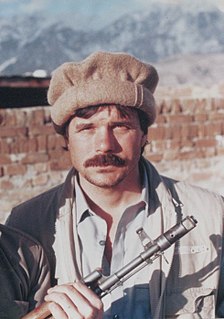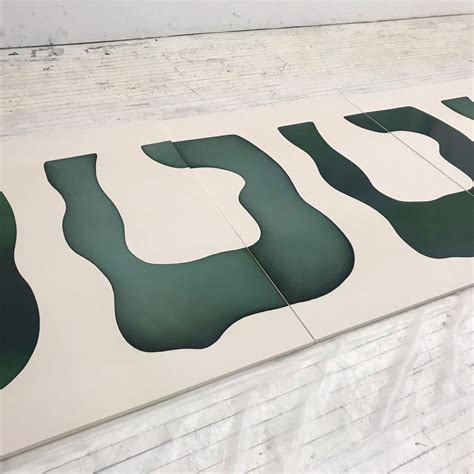A Quote by Richard Ashcroft
I'm very interested in Darwinism and how that affects us on a day-to-day level. But I also have a deep interest in theology and the spiritual.
Related Quotes
I am very much into politics, but what interests me is sacred principles applied to that area. You know, many people are interested in alternative health who are never going to become doctors, or practitioners. That is how I am about politics. I am interested in the intersection of the Spiritual and the political - how spiritual principles apply to the social and political issues of our day. For me, the spiritual realm, is a more powerful place to speak from on those issues.
I don't think I can put my finger exactly on when remission occurred, because from that moment on, I left Western medicine and never looked back. I practiced every day for ten to twelve hours a day - spiritual studies, meditation, pranayama, yoga postures, Ayurvedic studies, deep, deep, powerful cleansings and fasting.
I have this amateur side attraction to, and interest in, the sciences and biology and physics and evolution. Paleontology is of interest to me. I'm interested in the way these fields have helped us understand how we are human and why we are human. I'm also from the area that is considered to be the cradle of mankind.
On one level, I'm interested in how the space dictates the effect visually - how the composition of a given work changes depending on the nature of each wall. But I'm also trying to emphasize less tangible elements: the amount of time it takes to walk the gallery's perimeter; how one's physical distance affects his or her sense of the overall composition; how the size of the space creates a sense of visual rhythm. It's really a matter of seeing how much structure is necessary to impose for those things to become apparent.
There is however difference between the theology of liberation and traditional theology, the latter being based primarily On the Word of God made incarnate in the Holy Scripture Liberation theology is of course also inspired by the Word, but its representatives are convinced that God also speaks to us in everyday events and that, for example, information obtained through the mass media can be a special way in which God speaks to us.
I've been interested in terrorism from the very beginning. My first novel is about that, too, and I think one reason I've been so interested in terrorism is because I have a deep interest - one of my deepest interests - in image culture and how it works. And terrorism is an epiphenomenon of image culture.
The idea of having dinner together every day with your family removes the pressure from trying to explain everything. You tell us the good parts about your day, but you also tell us the bad parts about your day. And at the end of that, because you're in a ritual, you remove the pressure of admitting you had a failure that day. And it also takes the wind out of having a great day. I mean, it makes you a little bit more normal all the time. That moment of therapeutic sharing is something that happens in food, that doesn't necessarily happen when you're watching TV.
I am interested in Scripture and theology. This is an interest that I can assume I would share with a pastor, so that makes me a little bit prone to use that kind of character, perhaps, just at the moment. Then there is also the fact that, having been a church member for many years, I am very aware of how much pastors enrich people's experience, people for whom they are significant. I know that it's a kind of custom of American literature and culture to slang them. I don't think there is any reason why that needs to be persisted in.
There is no self-interest completely unrelated to others' interests. Due to the fundamental interconnectedness which lies at the heart of reality, your interest is also my interest. From this it becomes clear that "my" interest and "your" interest are intimately connected. In a deep sense, they converge.
When we talk about big issues like climate justice, of course that involves global and statewide implications. But it's also how we double our street-tree canopy to clean the air. It's converting to electric school buses. All of these issues at the city level start from the day-to-day impacts on people's lives.




































